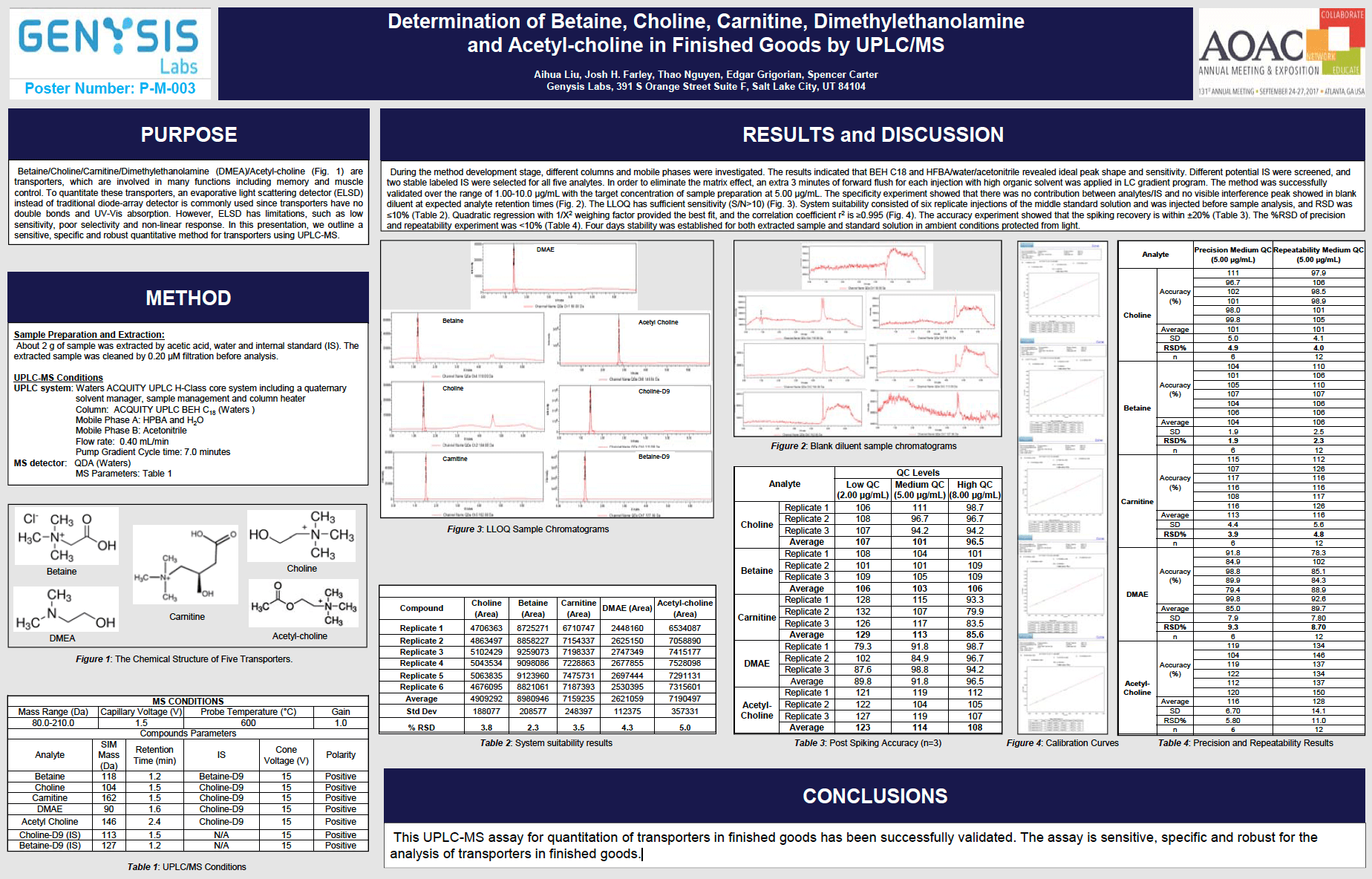AOAC 2017 Transporter Analysis by UPLC-MS
resources - Recent Conference Materials

Determination of Betaine, Choline, Carnitine, Dimethylethanolamine and Acetyl-choline in Finished Goods by UPLC/MS
Purpose
Betaine/Choline/Carnitine/Dimethylethanolamine (DMEA)/Acetyl-choline (Fig. 1) are transporters, which are involved in many functions including memory and muscle control. To quantitate these transporters, an evaporative light scattering detector (ELSD) instead of traditional diode-array detector is commonly used since transporters have no double bonds and UV-Vis absorption. However, ELSD has limitations, such as low sensitivity, poor selectivity and non-linear response. In this presentation, we outline a sensitive, specific and robust quantitative method for transporters using UPLC-MS.
Method
Sample Preparation and Extraction:
About 2 g of sample was extracted by acetic acid, water and internal standard (IS). The extracted sample was cleaned by 0.20 μM filtration before analysis.
UPLC-MS Conditions
UPLC system: Waters ACQUITY UPLC H-Class core system including a quaternary solvent manager, sample management and column heater
Column: ACQUITY UPLC BEH C18 (Waters )
Mobile Phase A: HPBA and H2O
Mobile Phase B: Acetonitrile
Flow rate: 0.40 mL/min
Pump Gradient Cycle time: 7.0 minutes
MS detector: QDA (Waters)
Results and Discussion
During the method development stage, different columns and mobile phases were investigated. The results indicated that BEH C18 and HFBA/water/acetonitrile revealed ideal peak shape and sensitivity. Different potential IS were screened, and two stable labeled IS were selected for all five analytes. In order to eliminate the matrix effect, an extra 3 minutes of forward flush for each injection with high organic solvent was applied in LC gradient program. The method was successfully validated over the range of 1.00-10.0 μg/mL with the target concentration of sample preparation at 5.00 μg/mL. The specificity experiment showed that there was no contribution between analytes/IS and no visible interference peak showed in blank diluent at expected analyte retention times (Fig. 2). The LLOQ has sufficient sensitivity (S/N>10) (Fig. 3). System suitability consisted of six replicate injections of the middle standard solution and was injected before sample analysis, and RSD was ≤10% (Table 2). Quadratic regression with 1/X2 weighing factor provided the best fit, and the correlation coefficient r2 is ≥0.995 (Fig. 4). The accuracy experiment showed that the spiking recovery is within ±20% (Table 3). The %RSD of precision and repeatability experiment was <10% (Table 4). Four days stability was established for both extracted sample and standard solution in ambient conditions protected from light.
Conclusion
This UPLC-MS assay for quantitation of transporters in finished goods has been successfully validated. The assay is sensitive, specific and robust for the analysis of transporters in finished goods.

